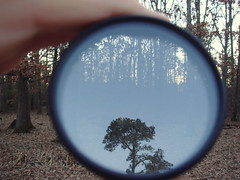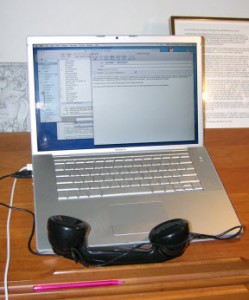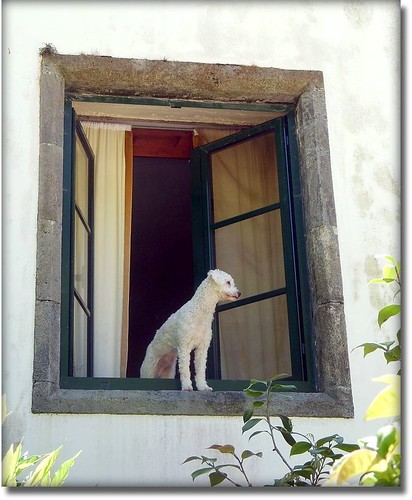I started drafting this post on May 12th and here it is the 10th of July. But as you can see, this week is my “catch up on my bloggin” week. So be warned! What follows is my very brief “catch up and report” on my Ethiopia trip. I’ll do a separate post on the Community 2.0 conference in Las Vegas that happened as the second leg of the trip. You will notice that the text reads as if it was written in May. Much of it was. Grin.
After a great week in Addis Ababa, Ethiopia, I’m back in the USA (after 28 hours of travel!!) and in Las Vegas at Community 2.0 Conference . Talk about culture shock. From the streets of Addis, where the smell of Ethiopian coffee floats out across streets filled with people who are alternately desperately poor and begging, or part of the emerging middle class, to the surreal neon and hype of Las Vegas, my head is totally confused. Here is the Ethiopia part of the story.
The week in Addis was wonderful. I was there to co facilitate a face to face follow up workshop on Knowledges Sharing for the CGIAR. This came after a four week online workshop. Simone Stagier blogged a lot of the workshop sessions here. Lots of pictures here.
I arrived on Saturday night on the same flight as one of our workshop participants, Pete Shelton. We had a brief stopover in Khartoum – wow, a dessert town in every sense of the word. Photos here. Then on to Addis. After a long wait for visa and passport control, we headed to the ILRI campus, our home for the next week. Ah, sleep.
Sunday Pete and I went into town to the National Museum, the home of “Lucy” the oldest known human skeleton. We followed up with our first Ethiopian food (I now love Injera – in Ethiopia it has a tangier, sour-dough taste. I understand in US restaurants not everyone uses the teff grain) which was a great way to start the trip.
On Monday I met up with my co-facilitators, Simone Stagier and Petr Kosina to do our prep. We decided to check and find out who had arrived and we had a little surprise. Three of our participants had also come in early and since they had to leave early, we created an impromptu session Monday afternoon. It is always good to remain flexible.
On Tuesday the workshop officially kicked off with a World Cafe, capturing the highlights of what we learned in the first online phase (4 weeks). In the room were 21 people passionate about knowledge sharing in international agricultural research. From Africa, Europe, Asia and the US, we spent the next three days working, eating, learning and playing together. As I always find, going from online to F2F totally jump starts both the personal interactions and the work. Plus being able to stay and meet on the campus created a great container for social interaction – for me a key to learning.
We covered a lot of territory on knowledge sharing tools and methods and each person worked to plan a knowledge sharing project at their home institution. As each person did and shared a SWOT (Strengths, Weaknesses, Opportunities and Threats) on their projects, it was interesting to see that the most shared challenges were technical (connectivity in many of the countries where people are doing their work) and social (getting engagement in KS, especially in a research based culture that rewards formal publishing). It was a perfect reminder that we need to pay attention to both areas and that neither the implementation of a new tool, or the presentation of an opportunity easily triggers knowledge sharing.
Despite little connectivity during the workshop, we tried to share our collective learnings about tools. At the end of the workshop on the “still want to learn” list of many was “more tools.” We were told in advance that people in the networks we were targeting were not so interested in tools, but clearly this group was. We also used a variety of knowledge sharing methods and spent a lot of time talking about the social processes of tools, so I think we did a pretty good job keeping a “holistic” view of knowledge sharing.
 On Saturday one of our local hosts, Nadia and her husband David took three of us out into town – a little sightseeing, coffee sipping and of course, some shopping. Thank goodness there are no ATMS and no credit cards, or I would have gotten carried away with beautiful jewelry, fabrics and lots of very cool rural farming artifacts (grain baskets, dairy gourds, etc). As it was, I was happy to contribute to the local economy.
On Saturday one of our local hosts, Nadia and her husband David took three of us out into town – a little sightseeing, coffee sipping and of course, some shopping. Thank goodness there are no ATMS and no credit cards, or I would have gotten carried away with beautiful jewelry, fabrics and lots of very cool rural farming artifacts (grain baskets, dairy gourds, etc). As it was, I was happy to contribute to the local economy.
As I left Addis that Saturday night, I was again reminded of the power of travel to open our eyes to new experiences and to help us see more clearly our own identity. Ethiopia is the fourth country in Africa I have visited, and a reminder of the diversity of the continent, something we American’s often lump together as “Africa.” From the high mountain geography, to the distinct Ethiopian culture, to the impact of colonialism from Italy and the Soviet Union, to the unique taste of the teff-based Injera.
Then there was Las Vegas. Mamma mia…
 If you are interested in knowledge management, knowledge sharing, collaboration and a passel of other topics, following WestPeter on Twitter is worth every second, every character, every bit and byte.
If you are interested in knowledge management, knowledge sharing, collaboration and a passel of other topics, following WestPeter on Twitter is worth every second, every character, every bit and byte. I have a tendency to destroy my computer headsets/mics with regularity. I run over the cords, the plugs loosen and then the sound degrades. It is time again to buy a new set, but instead of buying the cheapest set at the local office store, I decided to get the recommendations of my network – since many are also frequent users of this product.
I have a tendency to destroy my computer headsets/mics with regularity. I run over the cords, the plugs loosen and then the sound degrades. It is time again to buy a new set, but instead of buying the cheapest set at the local office store, I decided to get the recommendations of my network – since many are also frequent users of this product. I’m very happy to be involved in the second iteration of the
I’m very happy to be involved in the second iteration of the 
